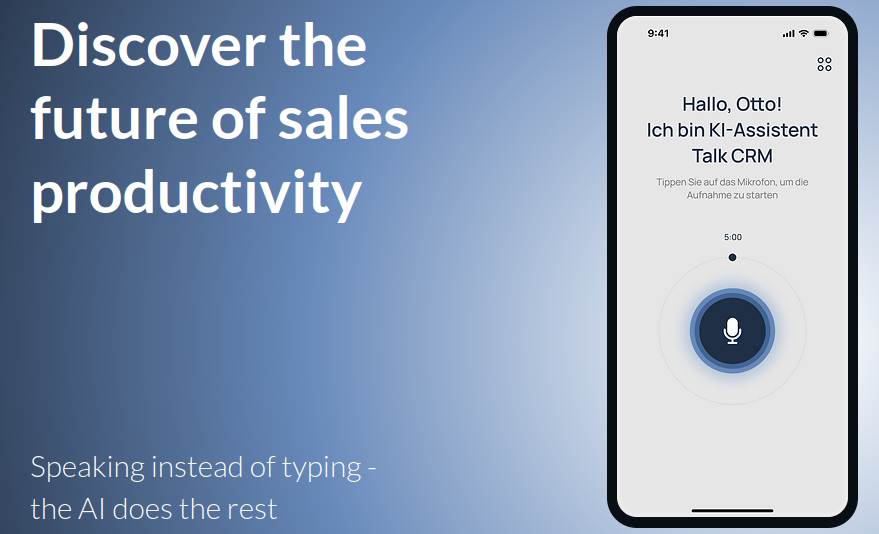AI-driven organizational change: how to lead your team through transformation
As AI becomes more deeply integrated into business processes, the way you structure teams, make decisions, and drive innovation is evolving at a rapid pace. To lead your organization through these changes, you need to understand both the potential of AI and its impact on your team’s dynamics.

The rise of AI in leadership isn't just reshaping individual roles—it’s transforming entire organizations. As AI becomes more deeply integrated into business processes, the way you structure teams, make decisions, and drive innovation is evolving at a rapid pace. To lead your organization through these changes, you need to understand both the potential of AI and its impact on your team’s dynamics.
In this post, you’ll learn how to navigate AI-driven organizational change effectively. You’ll explore how AI is influencing company structures, the new skills your team needs to develop, and the mindsets that will help you lead your organization into the future.
How AI is reshaping organizational structures
One of the most significant impacts of AI in leadership is the shift towards flatter organizational structures. With AI providing instant access to data and insights at every level, the traditional hierarchy of decision-making is becoming less relevant. Now, team members can make informed decisions quickly, without always needing to go through multiple layers of approval.
This shift means that leaders need to focus more on empowering their teams rather than controlling every decision. Instead of being the sole decision-makers, your role as a leader becomes more about guiding, mentoring, and supporting your team to use AI-driven insights in their daily tasks. Encouraging a culture where everyone takes ownership and acts as a leader in their own right is key to thriving in this new landscape.

The skills and mindsets needed for AI-driven change
As AI transforms your organization, your team will need to adapt to new ways of working. Here are some of the essential skills and mindsets that will help your team succeed in an AI-driven world:
- Digital literacy: Understanding how AI works and how to use it effectively is a must for every member of your team. Encourage continuous learning and provide training opportunities so your colleagues can stay up-to-date with the latest AI technologies and tools.
- Critical thinking: While AI can provide vast amounts of data, it’s your team's ability to analyze that data, question its accuracy, and draw meaningful conclusions that will set them apart. Promote a mindset of curiosity and skepticism to ensure that AI insights are always examined through a critical lens.
- Adaptability: The pace of technological change is only going to accelerate. Your team needs to be comfortable with continuous learning and adapting to new tools and processes. Foster a culture where change is seen as an opportunity rather than a disruption.
- Collaboration: As AI breaks down traditional silos, cross-functional collaboration will become increasingly important. Encourage your team to work together, share AI-driven insights, and use collective intelligence to solve complex problems more efficiently.
- Emotional intelligence: Even as AI becomes more integrated into workflows, the human touch remains critical. Developing skills in empathy, communication, and understanding will help your team navigate challenges that data alone can't solve.
Leading your organization through AI-driven change
As a leader, your role is to guide your organization through this transformation with clarity and vision. Here are some strategies to help you lead effectively during this period of change:
- Lead by example: Embrace AI in your own role to set a positive example for your team. When your colleagues see you using AI to make more informed decisions, they’ll be more motivated to follow your lead and adopt these tools in their own work.
- Communicate transparently: Be open about the impact AI will have on your organization and how it will change the way people work. Address concerns and provide clear explanations about how AI can enhance—not replace—your team’s roles.
- Invest in upskilling and reskilling: The most successful organizations will be those that invest in their people. Create opportunities for your team to learn new skills, both in AI technology and in softer skills like adaptability and emotional intelligence.
- Create a safe space for experimentation: Encourage your team to experiment with AI tools and approaches without fear of failure. Innovation often comes from trying new things, and a culture that supports experimentation will be more agile and resilient.
- Celebrate small wins: Acknowledge and celebrate every step forward your team takes in adopting AI. Recognizing their efforts will build momentum and reinforce the value of AI-driven innovation within your organization.
How AI is shaping the future of leadership
The future of leadership in an AI-driven world will look very different from what it is today. With data and insights accessible to everyone, decision-making will become more democratized, and traditional power structures will continue to dissolve. Leaders will need to be more collaborative, empathetic, and adaptable than ever before.
As AI evolves, so too must your leadership approach. You'll need to focus less on directing tasks and more on inspiring your team, fostering innovation, and creating an environment where everyone feels empowered to lead. By understanding the potential of AI and its impact on your organization, you can position yourself and your team to thrive in this new landscape.
Next up: preparing for the future of leadership with AI
Continue reading, and you’ll discover what the future holds for leadership in an AI-driven world. In our final post of the series, we’ll explore how AI will redefine the role of leaders over the next 5-10 years and what you can do to prepare yourself and your team for this transformation.
Leading an organization through AI-driven change is about more than just adopting new technologies; it’s about creating a culture that embraces innovation, collaboration, and continuous growth. By guiding your team through this journey, you’ll not only strengthen your organization but also shape the future of leadership itself.